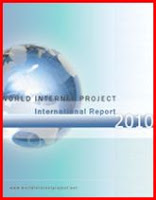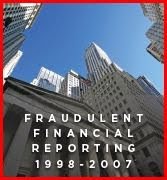Monday, June 28, 2010
Business & Technology - a new CICA eNewsletter
Technology is pervasive in most organizations. It may result in reducing certain risks and introducing new ones. It must be carefully managed to ensure its potential is reached. It must be effectively controlled to ensure its integrity and the integrity of the information it provides. Recently, the Canadian Institute of Chartered Accountants (CICA) introduced a new publication called Business & Technology to provide timely information on technology issues impacting business. Interviews, articles and discussion commentary address critical issues of IT governance, risk management, security and controls, information processing and integrity, facilities management and the latest in technology, trends and techniques to ensure businesses maximize their IT investment. The inaugural issue explores the technology implications of the move to International Financial Reporting Standards (IFRS): IT implications of IFRS; Podcast: IT & IFRS — The European Experience; and ITAC Brief - ‘IFRS and Spreadsheets: A High-Risk Combination’. (Subscribe to the CICA eNewsletters and webinars.)
Labels:
CICA,
data integrity,
governance,
IFRS,
information technology,
IT,
risk management,
security
Tuesday, June 22, 2010
7 Steps to Creating and Cultivating a Brand in Social Media
When something new comes along, it can be viewed with either enthusiasm or skepticism and, in some cases, a bit of both. This is true with social media. It represents a revolution in business, but every revolution starts with baby steps that help you move forward with confidence and direction. To get started, follow a simple set of questions to guide you through the phases of evaluation, planning and action. (Read the article "7 Steps to Creating and Cultivating a Brand in Social Media" at Open Forum online.)
Monday, June 21, 2010
World Internet Project Report 2010
The World Internet Project (WIP) is a major, international, collaborative project looking at the social, political and economic impact of the Internet and other new technologies. The WIP has released its second annual global findings on the impact of online technology - a five-continent collaboration creating an international picture of change produced by the Internet. The World Internet Project Report2010 includes new findings about how the Internet is used and how it affects a variety of beliefs, attitudes and behavior around the world.
Friday, June 18, 2010
Data Security Remains Top Concern for CPAs, Survey Shows
According to the American Institute of Certified Public Accountants' (AICPA) 21st annual Top Technology Initiatives Survey, data security will remain the most pressing concern over the next 12 to 18 months. This is the eighth consecutive year the issue has made the top of the list. The results of the 2010 survey will be discussed at the AICPA Top Technology Initiatives Webinar on June 23, 2010. The webinar will put the survey results in context using practical examples to provide participants with an introduction to each initiative and its implication for their clients. (Read the article "Data Security Remains Top Concern for CPAs, Survey Shows" at the Journal of Accountancy online.)
Thursday, June 17, 2010
Fraudulent Financial Reporting: 1998-2007 (COSO)
The Committee of Sponsoring Organizations of the Treadway Commission (COSO) has published a study, Fraudulent Financial Reporting: 1998-2007. It examines 347 alleged accounting fraud cases investigated by the US Securities and Exchange Commission (SEC) during that period. It also provides an in-depth analysis of the nature, extent and characteristics of the frauds and offers insights on new and ongoing issues to be addressed. Most of the frauds occurred before the Sarbanes-Oxley Act went into effect. (Read the COSO Press Release and also view a free Webinar and presentation slides that summarize the study's findings.)
Wednesday, June 16, 2010
US SEC Amendments to Rules Requiring Internet Availability of Proxy Materials
The US Securities and Exchange Commission (SEC) has amended rules under the Securities Exchange Act of 1934 and the Securities Act of 1933 to clarify and provide additional flexibility regarding the format of the Notice of Internet Availability of Proxy Materials that is sent to shareholders and to permit issuers and other soliciting persons to better communicate with shareholders by including explanatory materials regarding the reasons for the use of the notice and access proxy rules and the process of receiving and reviewing proxy materials and voting pursuant to the notice and access proxy rules.
Tuesday, June 15, 2010
What are investment professionals saying about financial instrument reporting?
The global financial crisis underscored the profound challenges in financial instrument accounting, prompting the IASB and FASB to address these issues and search for simplicity and consistency. However, they have been moving in separate directions. New research by PricewaterhouseCoopers (PwC) provides another forum for a cross-section of a key stakeholder group – the investors and analysts – to add to this critical debate. Read the June 2010 PwC publication What investment professionals say about financial instrument reporting.
Monday, June 14, 2010
CICA - Practical Guidance for Using the Internet in Corporate Reporting (Part 3)
As previously noted, the Canadian Institute of Chartered Accountants (CICA) is undertaking research to promote effective communication by providing helpful guidance for "Using the Internet in Corporate Reporting." The third booklet "Practical Guidance for Managing Web 2.0 and Social Media" is available as a discussion draft on the CICA website. Feedback and comments are welcome.
Friday, June 11, 2010
CICA - Practical Guidance for Using the Internet in Corporate Reporting (Part 2)
 As previously noted, the Canadian Institute of Chartered Accountants (CICA) is undertaking research to promote effective communication by providing helpful guidance for "Using the Internet in Corporate Reporting." The second booklet "Practical Guidance for Managing Websites" is available as a discussion draft on the CICA website. Feedback and comments are welcome.
As previously noted, the Canadian Institute of Chartered Accountants (CICA) is undertaking research to promote effective communication by providing helpful guidance for "Using the Internet in Corporate Reporting." The second booklet "Practical Guidance for Managing Websites" is available as a discussion draft on the CICA website. Feedback and comments are welcome.Thursday, June 10, 2010
CICA - Practical Guidance for Using the Internet in Corporate Reporting (Part 1)
Corporate reporting is the process used to communicate with stakeholders. Stakeholders are individuals or groups that may be significantly affected by a company’s activities, products and services or whose actions can affect the company’s ability to successfully implement its strategies and achieve its objectives. The Canadian Institute of Chartered Accountants (CICA) is undertaking research to promote effective communication by providing helpful guidance for "Using the Internet in Corporate Reporting." The first of three booklets "Practical Guidance for Managing Collaboration and Innovation" is available as a discussion draft on the CICA website. Feedback and comments are welcome.
Wednesday, June 9, 2010
Time to prepare a comprehensive risk management plan
For thousands of years, people have been predicting disasters, each more catastrophic than the last. Without resorting to Hollywood-style dramatics, can we really say that major events disrupt business operations? And if so, can we guard against such contingencies? Any organization’s risk management plans should provide answers to those questions. (Read the article "Get ready, now" in the June/July edition of CAmagazine online.)
Tuesday, June 8, 2010
IASB and FASB update to G20 Leaders
The IASB and the FASB issued a letter to the G20 Leaders on June 2, 2010 outlining the modified strategy for completing their convergence work. The letter states that "Reflecting our commitment to timely completion of the major MoU projects, the boards have significantly intensified their interaction. The boards are now meeting jointly for consecutive days on a monthly basis, either in person or by video. The boards have called, and will continue to schedule special joint meetings to address issues requiring timely joint resolution." (Read the IASB Web Announcement.)
Monday, June 7, 2010
Global State of Information Security Survey
For many years, information technology and, by extension, information security was among the most likely cost centres to encounter cutbacks in funding when companies fell upon difficult economic times. To find out if this is true, PwC surveyed more than 7,200 CEOs, CFOs, CIOs, CISOs, CSOs and other executives responsible for their organization’s IT and security investments in 130 countries. What are the implications of these trends on how your business is addressing the challenges of the economic downturn? What expectations should you be placing on your information security function at this time? Which areas of focus offer the best opportunities for security to provide concrete business value—not just over the long run but right now, during an unusual economic period? (Read the Global State of Information Security Survey Trial by Fire.)
Friday, June 4, 2010
Competitive Alternatives 2010
The KPMG/MMK Consulting study Competitive Alternatives 2010 compares business competitiveness for more than 100 cities in 10 countries: Australia, Canada, France, Italy, Japan, Germany, Mexico, the Netherlands, the United Kingdom, and the United States. For 2010, the study expands its coverage of large international business centres, adding a number of major global cities for the first time. International results now reflect business costs in each country's major metropolitan regions. The primary focus is international business costs. The study measures the combined impact of 26 significant cost components that are most likely to vary by location, as applied to 17 different business operations over 10 years.
Thursday, June 3, 2010
SBR Event - XBRL and Red Tape Reduction Initiatives
XBRL Canada is holding a webinar on June 7, 2010 at 4:00PM Eastern on the topic of using XBRL to reduce red tape and cut the cost of government compliance. This is an excellent venue for concerned Members of Parliament and their staff, other members of government and business people to learn more about how XBRL can reduce the reporting burden currently placed on businesses in Canada. Registration for the webinar is free and available via the XBRL Canada website. XBRL Canada is supported and administered by the Canadian Institute of Chartered Accountants.
Wednesday, June 2, 2010
Global XBRL Adoption Survey
Last year, XBRL International issued a Global Update on XBRL Adoption which shows that Standard Business Reporting (SBR) is a motivation for adoption of XBRL, notably in Australia, but also other countries. SBR is an approach to standardization of government filings and reports using XBRL as the core technology. It has been a key strategy in reducing the burden to business of compliance with governmental filing requirements. The global survey also shows a continued growth of XBRL in the regulatory area, particularly in securities regulation.
Tuesday, June 1, 2010
Redrawing the Map: Globalization and the Changing World of Business
This 2010 report by Ernst & Young/Economist Intelligence Unit draws on three sources of original research: an index measuring 60 countries according to their degree of globalization; an online survey of 520 senior business executives worldwide; and a program of in-depth interviews with 30 senior executives and high-level experts. The key findings of the survey Redrawing the Map: Globalization and the Changing World of Business are that: (1) Competing in a new environment: The rise of companies from emerging markets has changed the game and the outlook for business. (2) Expanding internationally: Despite the downturn and concerns over state intervention, companies are still planning geographic expansion. (3) Innovations in innovation: Companies must rethink strategies to ensure that innovations developed in one country are commercially viable in others. (4) Diversifying management: As companies deepen and broaden their presence in international markets, the need for culturally diverse management teams becomes all the more pressing. (5) Policy matters: Business will have to engage with governments and other policymakers on global issues such as protectionism, regulation and trade issues.
Subscribe to:
Posts (Atom)
















